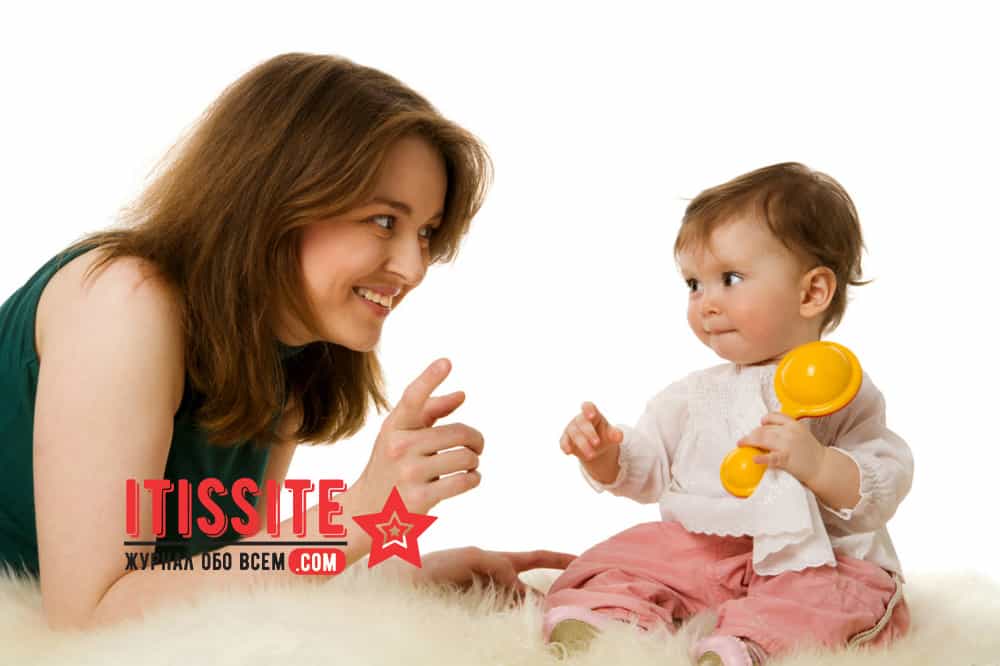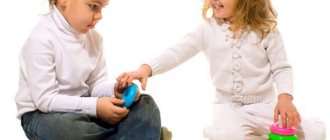Most parents have a question: when to start raising a child? In some cases, adults believe that it is too early, while in others, unfortunately, they conclude that it is quite late.
The concept has a number of formats and is considered not only from the point of view of a professional pedagogical approach, but also from a number of other directions. These include experience. This factor is leading in all directions, as it is gaining momentum and outpacing the speed of thought and the number of participants. The concept is simple: the birth of a child is not just a joy for parents, but also the well-known participation of grandparents, and in some families, great-grandparents. The circle of participants in this significant event is wide, and each has many years of experience in education, treatment, feeding, walks and a lot of different stories.
This moment can become the number one reason for the “split of a young couple” and divergence of opinions.
A harmless way to solve a problem
In order to have a clear conviction when to start raising a child, you need to define your positions even before his birth. One wise man said: “If you want to be a good teacher, become a good student.” Don't look for difficulties out of nowhere. Having created a family, people independently build their own way of life and try to “get used to” for a certain time. This is a normal situation, a path that has been proven over the years and has a right to exist.
Readiness to become parents already obliges us to prepare to become educators. To do this, it is necessary to “present a united front.” In creating any young family, both sides of the young parents, madly in love with their child, who has suddenly grown up and is trying to go out on his own, try to participate. Not having time to move away from “handing over” their child into the hands of another woman or someone else’s boyfriend, potential grandparents on a subconscious level believe that they must definitely participate in the fate of the young family. Caring and worrying are good, but there should be moderation in everything. To do this you need:
- Define your positions independently. This must be stated correctly and diplomatically, with the presence of a young man and a girl at the same time. The purpose of the dispute is one - to assure parents that the young family will cope with all the “hardships” of future motherhood on their own, and the help of parents is only in emergency situations.
- The expectant mother should involve her husband as much as possible in preparing for the birth of the baby. This does not mean that he is obliged to be present at the birth. The preparation of everyday issues, preliminary purchases and detailed explanations of what to do and where to get it if the wife is sent to the maternity hospital will be sufficiently limited. It’s not the mother who should be immersed in such details, but the husband! It is important.
- Choosing a name. Completely abandon the principle: “I’ll decide for myself!” A mutual decision and the ability to hear and respect each other is an important factor in the formation of family relationships.
- When to start raising a child? Even before he was born. This is the right approach and the right decision.
Baby and education

The birth of a baby brings a lot of troubles and worries to the home. The behavior of mom and dad in many actions is a mirror image for the child. This is especially pronounced in the first years of life.
Education is work that requires a constructive approach and a complete absence of a race for leadership. In the first year of life, after 10 months, the baby understands voice intonation well. By his facial expression, the mother understands the child's reaction. The age period from one to three is determined by the basic needs:
- Sound and healthy sleep.
- Complete nutrition.
- Timely chair.
With the first steps comes the likelihood of falls, bruises and failures. It is important to concentrate his understanding on such things as “you can’t” and “no”. Potty training a child is also worthwhile from the standpoint of learning and praise.
First problems and ways to solve them
With the first steps and words, the child tries to test his parents' strength, using known methods - crying and screaming. If they are not associated with physical pain, but are an element of manipulation, then the parents’ behavior should be appropriate.
Many babies attract attention and try to get what they want by squealing and stomping their feet. The reaction and behavior of adults is an important step towards proper upbringing.
Experts believe that before deciding when to start raising a child, it is worth considering important rules:
- For children of kindergarten age, a playful form of education is an ideal option. They perceive words, actions and their results through the process of playing and the participation of their favorite characters.
- Ignoring a child's problem. What seems extremely simple to parents can play a significant role for the baby. It is worth carefully delving into his problem and dispelling all fears.
- Supporting any positive endeavor. There is no need to look for activities for your child. He does a great job of doing this on his own. If you are interested in drawing, buy some paints and a sketchbook; if you like building, use a construction set; if you see your creative potential, organize a home theater. The child should be interested, he is just beginning to find himself.
- Confidence. Changing the rules in favor of one's own benefit is not the best tactic. This applies not only to the game process, but also to everyday issues. If there is a taboo, then it should be a strict rule for all participants.
Parental mistakes are a sad result of upbringing
Those who are not sure when to start raising a child should clearly understand two main parameters:
- You need to start as early as possible. The main thing is to do this competently and professionally.
- There is no need to perceive the process of education as a monotonous proofreading after pampering the baby. Parenting is a format of behavior that is perceived by a child as the norm.
Many parents make one of the common mistakes. They punish the child for this or that behavior or trick. Physical impact is a priori unacceptable. The format of threats in terms of deprivation of a walk, watching TV, or going on a visit is the wrong strategy. Preschool children do not always understand what they should do. It is very important to talk to them and explain. Three- to four-year-old children trust their mom and dad. They are role models for him. All conversations and arguments of loved ones are a powerful and effective tool.

But common mistakes when starting to raise a child include:
- “The threat to stop loving, to leave, to leave, to give to someone else’s uncle.” This form must be thrown out of the arsenal of influence. Little children are attached to their mother and the fear of loss brings shock. He will stop playing around, but his actions will be driven not by his upbringing, but by the fear of being left in this world without a loved one. Manipulating feelings is the main mistake.
- Control of emotions. Every person is subject to a bad mood. This becomes the result of everyday troubles, slight malaise, problems at work, resentment and a lot of reasons. But putting the burden of troubles on the baby’s shoulders and making him a hostage to his bad mood is wrong. It is worth refraining from raising intonation and abstracting yourself.
- “Beloved” children are a direct path to raising an egoist in the family. Excess care, the desire to give, buy, please (without obligations, just for the fact that he is a “little child”) - there is a possibility and a sad result, but there is no education! And there is no point in thinking when to start raising a child!
- Let everything take its course, being sure that nothing can correct the genes. Character is work, you need to be a good sculptor to try to sculpt cleanly and well. Using a similar allegory, it is worth noting that childhood is an ideal time when you can and should find mistakes and correct them!
- Many parents object in the style of: “Did I teach this?” It sounds like an excuse for one's own powerlessness. No, I didn’t teach you, because I didn’t explain how to act. Children should not be told what not to do. An educational moment is when he is told how to act correctly in any situation, and a wrong action is presented as a result of deviation from the rules. Two views on one situation - making you wear a scarf. The first is the order “we will dress or...”. The second is “when it’s cold, you need to hide the neck, otherwise it will get sick and we won’t be able to go...”. Engage - the correctness of the action, and summarize the result of the broken rules.
Child development from 0 to one year.
Some parents ask questions during consultation about the normal development of their children. And I ask other parents questions:
- How could you not see this violation?
— Why didn’t you turn to specialists earlier?
And believe me, it’s better to be safe than sorry...
Remember that a child is an individual. Each baby develops in its own way: some faster in some ways, some slower. So, let's look at it by month:
Newborn
The movements of a newborn baby are uncoordinated. Arms bent at the elbow joints, fingers in fists, legs in knees - the muscles are in physiological hypertonicity.
If you learn to “read” your baby’s body language, you can help him in many ways. When the tummy is bloated, the child may actively pound his legs, arch, and, if there is discomfort in the ear, actively twist his head.
The eyes are fully formed immediately after birth. But the child’s vision is not yet sufficient; he cannot concentrate his gaze on an object because he sees blurredly. Everything is explained by the immaturity of the visual organs.
Children cry without tears for the first 3-4 weeks of life.
Newborns hear and can easily identify their mother's voice. She can recognize her mother from birth by smell and, sensing the smell of breast milk, actively searches for the nipple with her lips. Mothers are not recommended to use perfumes with pungent odors, because the child may perceive it as a stranger and refuse to feed.
1 month
A newborn spends most of the day sleeping. And in a dream, the child perceives the sounds of the surrounding world. The baby reacts to sharp, loud sounds by shaking his whole body, wrinkles his forehead, and closes his eyes. An expression of fear appears on the face, breathing quickens, and the baby begins to cry. In families where adults constantly talk in a raised voice, children's sleep is disturbed, irritability appears, and their appetite worsens. An affectionate, friendly tone in the family creates a sense of security and confidence in the child in future adult life.
At the beginning of the 1st month, children begin to “meaningfully” look around, fixing their gaze on objects longer and longer. The first “objects” of increased attention in a baby are the faces of the closest people - those who care for him.
By the end of the 1st month, the child begins to quite consciously smile at the sight of loved ones and turn his head towards the source of the sound. A moving object is not followed for long.
If you spread a child’s fingers and put a rattle in his palm, he will quickly grab it, but immediately let go.
2 month
At the 2nd month, the baby’s movements become more varied: he raises his arms, spreads them to the sides, stretches, holds a toy placed in his hand and pulls it into his mouth.
The baby begins to become interested in bright, beautiful toys, looks at them for a long time, touches them and pushes them with his hands. He still cannot grasp a toy with his palm on his own. In an upright position, the child begins to hold his head, and lying on his stomach raises it. By the end of 2 months, being in the mother’s arms, the baby is already confidently looking around. Lying on his tummy, the child should hold his head for up to 15 seconds. And if, starting from birth, before each feeding, you laid your baby on his tummy for a few minutes, now he can lie down for up to 15 minutes. Train your baby!
The child's auditory and visual analyzers improve. Due to the structural features of the visual apparatus, at first the baby’s attention is attracted to stationary objects located at a great distance. Then he begins to look at closer objects, turn his head and follow the moving toy with his eyes. If you take a rattle and move it over the crib left, right, in a circle, you will see that the baby is following it with his eyes. Do this exercise at a distance of at least 52 cm.
In the second month, you can hang the toy above the baby’s crib at a height of 25-35 cm. You choose the variety and number of such toys yourself. It’s better to hang 1 or 2, then alternate toys, showing them after a while.
Previously, when a child heard sounds, his whole body shuddered. Now he can not only distinguish them, but also turn his head towards the sound, listen to your conversation, to the pleasant music that sounds in the room.
Most children at this age enjoy bath time. A child can happily splash his arms and splash his legs under the water.
During this period, positive emotions predominate in children: smiling, motor animation, humming at the sight of their mother’s smile, in response to affectionate treatment. Even if the mother scolds the child with a smile and a gentle voice.
The child tries to shout out individual sounds “u”, “a”, “e”. At the end of the month he will try to combine vowels with consonants (“ha”, “he”).
3 month
At the 3rd month, the child becomes even more active, begins to roll over first from his back to his side, and then onto his stomach and confidently hold his head up. The baby really likes to lie on his stomach, while he, leaning on his hands, raises his head and upper body, carefully examines the objects and toys around him, and tries to reach them. Lying on his stomach, he can hold his head for 10-20 seconds. If you pull him by the arms, he tries to sit up. Hand movements are varied.
Lying on his back, the child quickly and accurately grabs an object placed in his palm and pulls it into his mouth. Be careful, the child puts everything in his mouth. He already has his own preferences. Most often these are small rattles that he can independently hold in his hand.
The child distinguishes faces and voices of “friends and strangers”, understands intonation
Many children like to “listen” to dance music or calm, quiet music. At this age, children love to “talk” to themselves.
When children play with their hands, they make different sounds.
4 month
Your baby is already 4 months old. And perhaps his eye color and hair color have changed.
The baby turns more actively from back to stomach and from stomach to back, sits down with support from the hand. The grasping reflex is replaced by voluntary grasping of objects. He takes the toy, holds it tightly with two or one handle, moves the toy from side to side, while carefully watching the movement of the toy with his eyes. The fingers on the hands are no longer clenched.
The child begins to explore the world of tactile sensations: he feels with his hands a blanket, diapers, his body and especially his hands. He examines carefully, keeping the selected object in his field of vision for a long time. When examining the hands, the child holds them in one position for a long time, which is impossible without prolonged contraction of individual muscle groups, and requires a certain degree of maturity of the nervous system, visual analyzer and muscular system.
The baby begins to compare his tactile sensations and visually perceived images, thereby expanding his ideas about the world around him.
During bathing, the baby shows a desire to swim on his tummy. He persistently moves his arms, moans, sniffles and even screams because he can’t do it.
At the end of the fourth month, your baby will be able to enjoy the world in color rather than black and white.
Children really like to sit. He can hold the head upright on his own, but it’s not worth doing this yet, since the baby’s muscles are not yet strong enough to be in this position. Don't rush things.
At the age of four months, the child strives to communicate with you and already knows how to laugh loudly if you tickle him.
5 month
When communicating with adults, a five-month-old child develops a revival complex. The baby is emotional, actively moves his arms and legs and roars with many vowel sounds. He pronounces several consonants (b, d, m, k) and vowels (a, e, i, s) and tries to combine them into syllables.
The baby gurgles and smiles to attract attention and start playing. Joy is confirmed by emotions: squeals, laughs, hums, squeaks. Screams indignantly if you take away his toy.
Your child can already sit up and keep his back straight without the help of adults. He kneels down and tries to crawl, leaning on his outstretched arms. The child confidently takes and holds various objects within his reach. Everything that falls into the hands of a child at this age, after feeling and examining, ends up in the mouth. There is no need to worry about this, since a baby exploring the world, in addition to sight, hearing and smell, actively uses touch and taste, the significance of which is very important for the process of cognition at this age. Therefore, in no case should one interfere with the child’s research interest, which strives to “test the teeth” of everything. Just make sure that there are no small or sharp objects nearby that are dangerous for the baby.
Considering that the baby can already actively roll over and explore the space around him, he needs more space. And this place must be absolutely safe. Be careful - at this age children often “fly” from the sofa and get injured from blows during a fall. Lay a warm blanket on the floor, surround it with pillows and put a lot of different toys - this will become your baby's best playground. Or use a portable playpen. The child will be near you, and you will not have to run to another room and see what he is doing.
TO BE CONTINUED…….









